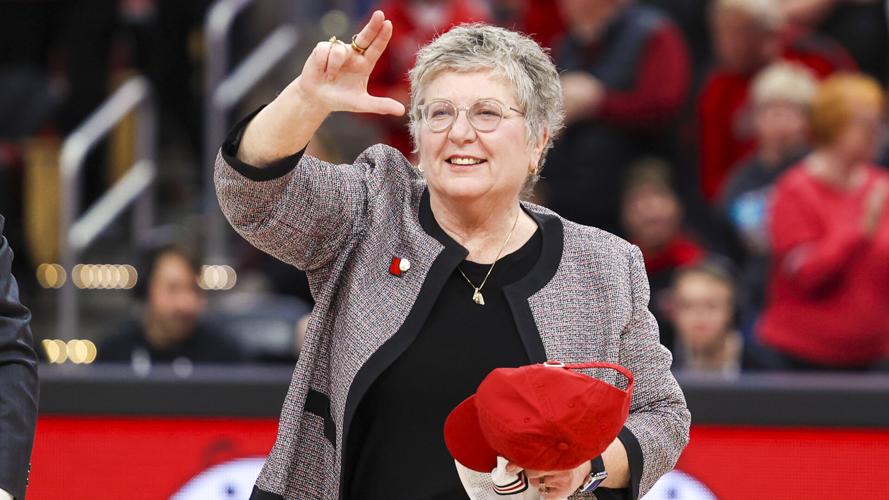LOUISVILLE, Ky. (WDRB) -- University of Louisville President Kim Schatzel "strongly endorse(s) continued support" for diversity, equity and inclusion initiatives at U of L and other state colleges, Schatzel said Monday in a university-wide letter.
While not mentioned explicitly, Schatzel's letter was prompted by efforts in the Republican-dominated state legislature to curtail so-called DEI work on state campuses.
Her comments come five days after her counterpart at the University of Kentucky, Eli Capilouto, explicitly opposed a pair of anti-DEI bills in the Kentucky House and Senate.
"I strongly believe that you cannot deliver a high-quality university education without a diverse classroom and campus – inclusive of all demographics, identities and ideologies," Schatzel said in the letter. "Only in such circumstances and with such experiences will our students be prepared to foster their own and others' excellence in a diverse global economy. In short, a diverse and inclusive campus better prepares our students to lead."
Unlike Capilouto, Schatzel did not explicitly say where she stands on current legislative proposals to limit DEI work. U of L spokesman John Karman said Schatzel's letter speaks for itself.
Senate Bill 6, which passed the Senate on Feb. 13, would prohibit universities from providing training on, or requiring students or faculty to endorse, about a dozen "discriminatory concepts" and mandate that any diversity initiatives focus on increasing "intellectual diversity" while spending at least half their resources on helping low-income students.
House Bill 9, meanwhile, would prohibit colleges from requiring courses or training on DEI "inclusion or discriminatory concepts" to complete a program and also from counting such courses toward degree credits, among other mandates.
The efforts are in line with a number of recent proposals and legislation to curb DEI in conservate states, according to the Chronicle of Higher Education.
Capilouto called the Kentucky bills "deeply concerning."
"The truth is that our world and our state are changing," he said in a Feb. 14 campus message. "We are growing more diverse. Indeed, we must, if our state is to grow economically. We should embrace that change and harness the opportunities it presents, not shrink from it."
Republican supporters of the bills have said universities should value diversity, but DEI is discriminatory and divisive, and that campuses are increasingly hostile to politically conservative students and faculty.
"This diversity thing — whether it's in corporate America, whether it's in UK or wherever it is — is being blown way out of proportion," said Sen. John Schickel, R-Union, during the Feb. 13 Senate debate on SB 6. "Equal opportunity? Yes. But reverse discrimination through policies that we see and hear testimony to — that is shocking … People are fed up with it."
Sen. Mike Wilson, R-Bowling Green, said on the Senate floor Feb. 13 that SB 6 wouldn't prohibit universities from valuing diversity, so long as their efforts don't become discriminatory.
"There is much we can do to promote academic success for under-representative minorities without promoting divisive academic theories," he said.
U of L has a vice president of institutional equity, Lee Gill, and an office of institutional equity to oversee the university's diversity initiatives and programming. The school has a physical Cultural and Equity Center which seeks to "to lessen the disparate impact that our university community members faced in the past when seeking support for their numerous intersecting identities."
The center has staff who work on "Hispanic, Latinx and indigenous" as well as "Black and multiracial" initiatives and houses the university's LGBT Center, Muhammad Ali Institute for Peace and Justice and Women's Center.
Schatzel, in her campus message Monday, called for a broad interpretation of diversity.
"UofL and I as its president remain committed to being an institution that values the unique backgrounds and contributions of all our faculty, staff, students, alumni and community members – inclusive of all races, religions, ethnicities, ages, ideologies and levels of ableness," she said. "It also includes students who identify as veterans, refugees, LGBTQIA+, adult learners, rural, first generation, Pell-eligible and others – all the while recognizing and respecting the impact of intersectionality."
For university presidents, speaking out against conservative priorities can be a tricky balancing act, as Republicans firmly control the legislature and therefore, the state purse strings. U of L, for example, is hoping to secure $260 million in state funding for a new building on its downtown health sciences campus.
When WDRB asked Schatzel about the anti-DEI proposals on Jan. 31, she said it was too early in the legislative session to offer an opinion on the bills and that U of L officials were working with the Kentucky Council on Postsecondary Education to communicate with lawmakers.
"The dialogue is going really well, so that's the important thing," she said at the time.















